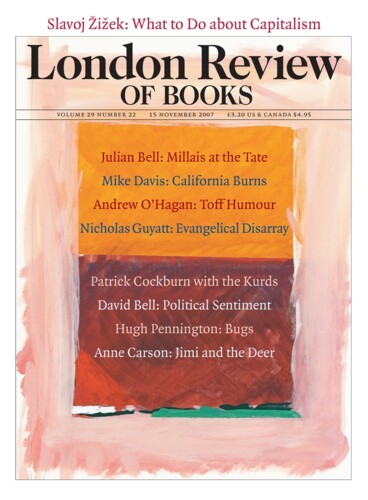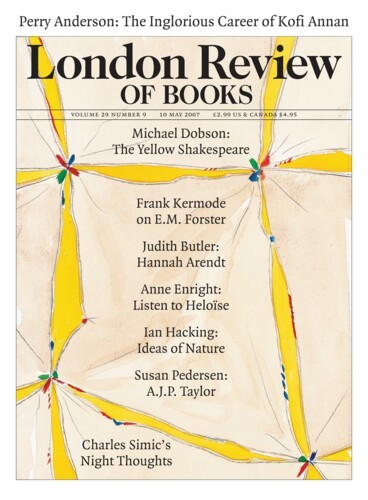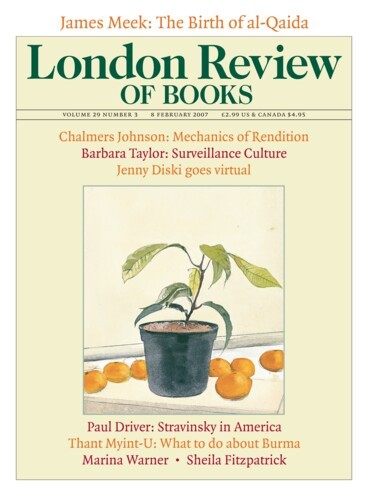Diarrhoea diminishes dignity. In the Western world most people don’t bother to seek medical advice for it, because they are embarrassed and because they expect it to go away soon. They are often right: most community-acquired intestinal infections are self-limiting and get better more quickly if left untreated. This is true even for E. coli O157. Taking antibiotics or antispasmodics is thought to increase the risk of developing the complications of kidney failure, brain damage and cardiac death. But Clostridium difficile is different. Treatment with special antibiotics often works well, but about 7 per cent still die. E. coli O157 outbreaks have much lower mortality rates and infections caused by it are much rarer. In England and Wales in 2005 there were 950 laboratory-confirmed cases; in that year Clostridium difficile caused 51,690 cases of disease and was mentioned on 3807 death certificates.
Investigation into Outbreaks of ‘Clostridium difficile’ at Maidstone and Tunbridge Wells NHS Trust
Commission for Healthcare Audit and Inspection, October 2007
Investigation into Outbreaks of ‘Clostridium difficile’ at Stoke Mandeville Hospital, Buckinghamshire Hospitals NHS Trust
Commission for Healthcare Audit and Inspection, June 2006
Diarrhoea diminishes dignity. In the Western world most people don’t bother to seek medical advice for it, because they are embarrassed and because they expect it to go away soon. They are often right: most community-acquired intestinal infections are self-limiting and get better more quickly if left untreated. This is true even for E. coli O157. Taking antibiotics or antispasmodics is thought to increase the risk of developing the complications of kidney failure, brain damage and cardiac death. But Clostridium difficile is different. Treatment with special antibiotics often works well, but about 7 per cent still die. E. coli O157 outbreaks have much lower mortality rates and infections caused by it are much rarer. In England and Wales in 2005 there were 950 laboratory-confirmed cases; in that year Clostridium difficile caused 51,690 cases of disease and was mentioned on 3807 death certificates.





